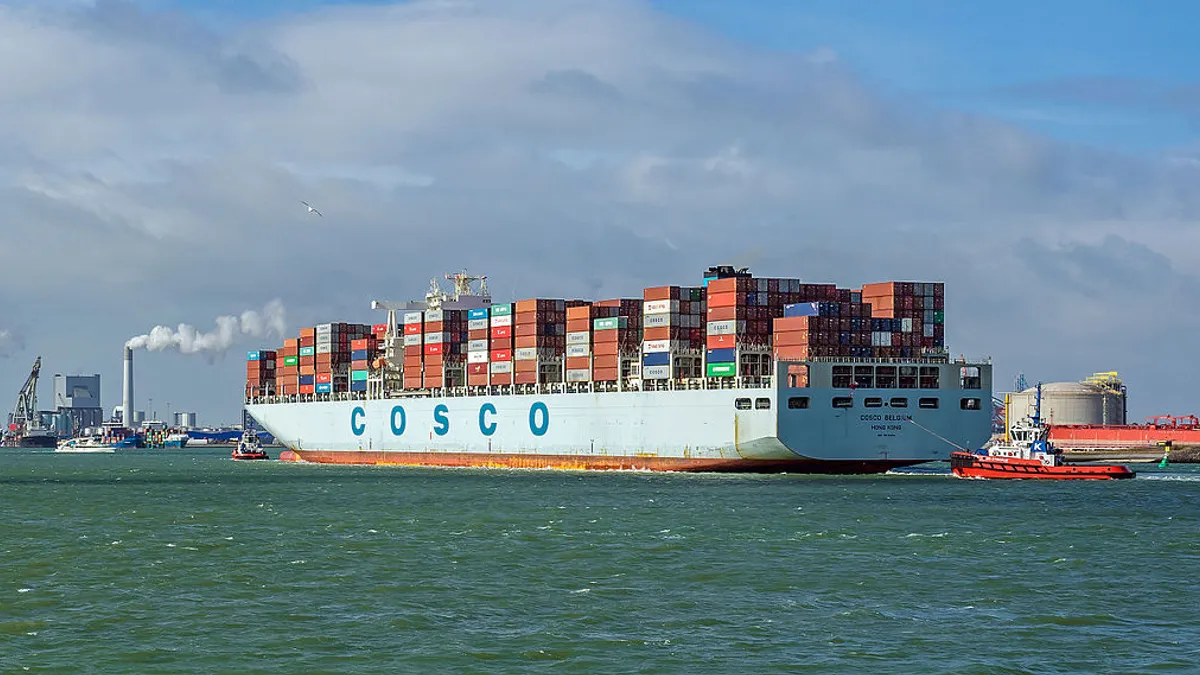Dive Brief:
- The Yara Birkeland is a battery powered, autonomous container ship set to operate independently in 2018, Supply Chain Digest reported Tuesday. The Birkeland will travel 37 miles to the port of Larvik carrying 100 containers of fertilizer that is currently moved by truck.
- The ship will travel autonomously by the combined use of GPS technology, radar, cameras and sensors. It should be able to navigate and avoid other ships and dock independently.
- While the Birkeland is alleged to begin operation in 2018, even a 2020 start date is unlikely. Legislation is slow and the cost is prohibitive since any breakdowns requiring repair during operation will be extremely expensive.
Dive Insight:
Advocates believe that autonomous cargo ships could easily disrupt the $15.5 trillion logistics business, but several complexities require resolution before that happens.
The main value of autonomous vessels is the reduced shipping cost. Business Insider reports line-haul deliveries — which occur when goods move between two major cities or ports — account for 37% of the price of delivery, making it the second most expensive portion of delivery. Autonomous ships decrease that cost by reducing the need for most, if not all, humans involved. Eliminating human salaries means millions saved, since the average salary of vessel staff is close to $81,000, a savings that could easily reach clients. Further, since nearly 90% of goods are transferred via water vessel, the savings would be widespread across the industry.
One concern is the fact that safety on board is never 100% guaranteed. Congested shipping lanes requiring careful maneuvering or dangerous storms could easily arise and affect any ship, as could piracy; so as autonomous ships are implemented, it's unlikely that all human jobs aboard vessels will be eliminated. Regardless, autonomous technology will continue to disrupt supply chains, and the shipping industry is not immune.














